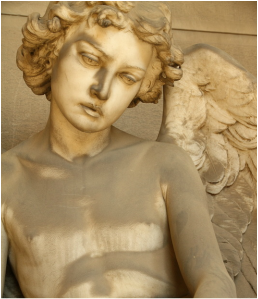
Sex & Religion
in Fictional Characters
and Living Beings
Response to The Lost Souls Series often focuses on the characterization of main character Charlotte O’Brien. The realness of her. The way the reader knows her. It comes from industry insiders as praise for her voice. From readers, I hear: I love Charlotte, I want to be Charlotte’s friend, I just need Charlotte to be okay, and my favorite—I want to play Charlotte in the movie.
We know Charlotte.
When I completed the first book, now being published as the second, Redeem Me, I was leery of the sexual content. Specifically, the sexual content in the same manuscript as religion. One romance editor passed on Redeem Me citing her discomfort with the religious themes. I thanked her and responded, “I get it. I’m uncomfortable with it too.”
But it’s in there, not coming out. Lost Souls tells the story of a young woman who believed in God her entire life and then one day, didn’t know what to believe in anymore. Her attempts to rebuild her life are not beautiful. They are graphic; emotionally, sexually, and spiritually raw.
There’s a reason it’s written this way, a reason our understanding of Charlotte is so intimate. As we journey through life we connect with people, places, and ideas. At each interaction we run the images, collected from all our senses, through a series of filters. It’s an instantaneous process that creates our understanding, our reaction.
For instance, an overweight, graying man rear ends me at a stop sign. He gets out of the car and begins screaming, calling me a “dumb whore.”
I draw upon hundreds of thousands of prior interactions to process this moment.
· Success in the spelling bee in 2nd grade
· My fat, gray chemistry teacher telling me to “just sit there and look pretty”
· My recent promotion
· That one time my ex-boyfriend called me a whore
· A near perfect score in the mathematics section on the SATs
· Amazing Grace sung at my grandfather’s funeral
At the exact moment I run the interaction through my “filters.” I am a:
· Woman, and I’m alone
· Wife, and glad my husband’s not here. He’d already be out of the car.
· Daughter, and I don’t spend enough time with my ailing parents
· Sister, who never backed down from a fight
· Writer, who is definitely going to make this man an unsavory character
Unconsciously, we process every interaction through our being until we reach our core, our belief in our purpose on this earth. Some of us are like Charlotte and this belief is based in religion. For others it has nothing to do with a higher power.
You may believe wholly in God, or believe with questions—a wavering dedication, or have no faith in a creator at all. For the devout, it’s immediately thanking God for his presence. For others it’s questioning, “What the hell, God? You hitting the bottle again?” And for the non-believers it sounds something like, “I am the captain of this ship and it will not sink.” It is this personal doctrine we follow, the essence of our being, which directs our path.
We know Charlotte, we so clearly hear her, because I give you all of her. Her to her very core. She relies on this foundation to rebuild her life, even when she has consciously shunned it. In book 1, Forgive Me, Charlotte loses her parents and her faith in God. She longs for something to “fill” her, to steer her when she no longer sees her path. She finds an intense sexual relationship.
But even lost, she runs it through her core for understanding.
“My cheeks burn as I remember crying out as I came, blindfolded and bound. This cannot be wrong. God would not have created something in this universe that’s this good and then made it wrong.”
Charlotte searches for understanding in a world that no longer makes sense. Her search begins within herself for there’s no greater jeopardy to the living, than losing our purpose for life.
Charlotte is a spiritual being. She is a sexual being. She is a human being.
Readers know Charlotte, they love her, because they hear all of her. For some of us, we know Charlotte better than we know ourselves.